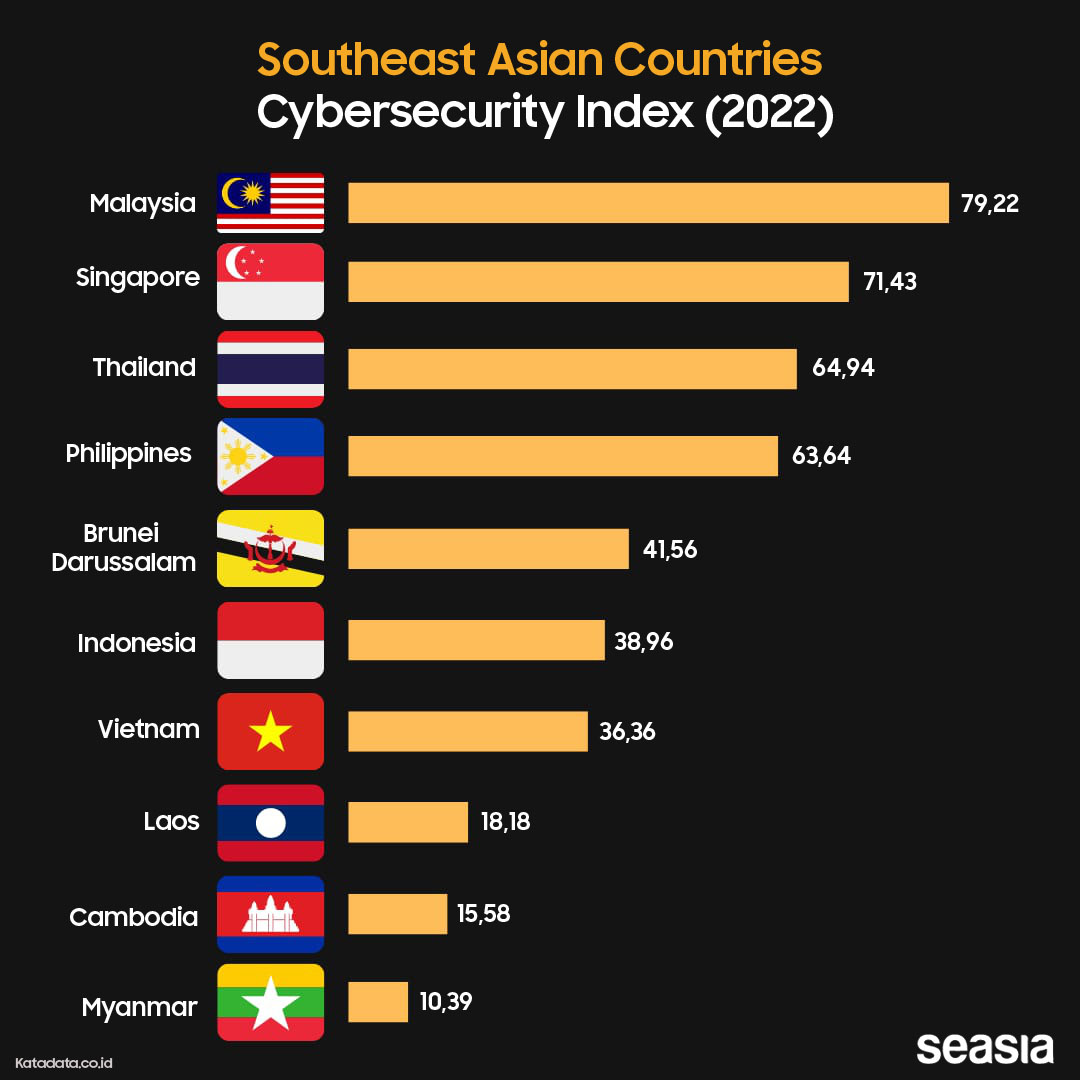In today's modern era, there are many activities that can be done online or via the internet. The internet provides convenience and benefits for its users. However, it cannot be denied that cybercrime is the main enemy that must be anticipated. Cybercrime can be handled by making efforts to improve cybersecurity. Every country has its own cybersecurity, including Southeast Asian countries.

The National Cyber Security Index (NCSI) has released the 2022 Southeast Asian countries' cybersecurity index. According to NCSI data quoted on Monday (7/3), Malaysia's cybersecurity is at the top of Southeast Asia. Followed by Singapore in the second position, Thailand in the third position, the Philippines in the fourth position, and Brunei Darussalam in the fifth position. Indonesia, Vietnam, Laos, Cambodia and Myanmar are in positions 6 to 10, respectively.
This assessment is made based on a number of indicators, such as cybersecurity laws and regulations, the availability of government agencies in the cybersecurity sector, government cooperation on cybersecurity, as well as public evidence such as government websites or other related programs.
With these indicators, Malaysia, which is in the top position, has a score of 79.22 out of 100 in terms of cybersecurity. Malaysia's cybersecurity is ranked 18th globally. Then, Singapore came in second with a cybersecurity score of 71.43. Followed by Thailand, the Philippines, and Brunei Darussalam with scores of 64.94, 63,64, and 41.56 respectively. Indonesia has a score of 38.96 out of 100 in terms of cybersecurity. Vietnam with a score of 36.36, Laos 18.18, Cambodia 15.58, and Myanmar 10.39.
Source: Katadata.co.id, NCSI



















